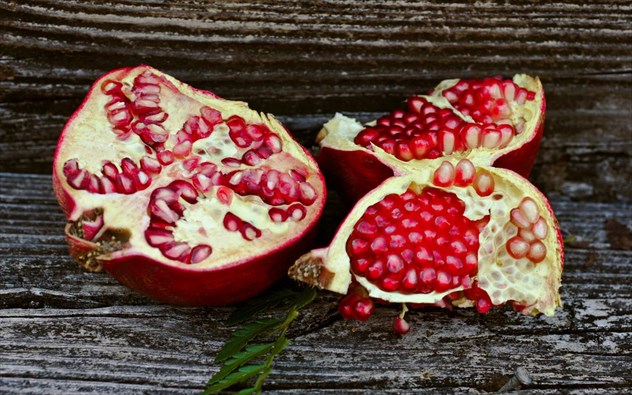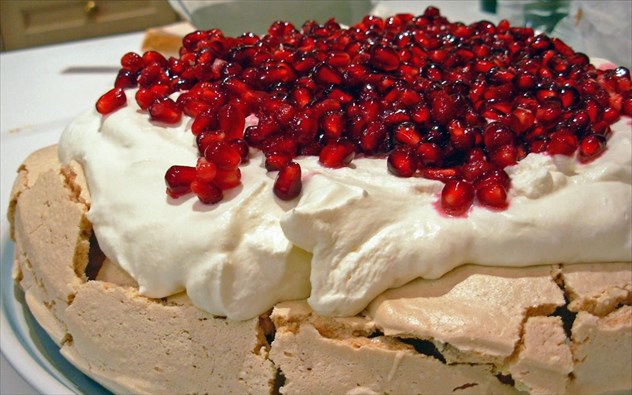Pictures: www.clickatlife.gr
The ancient fruit has great nutritional value and an important symbolic meaning for many cultures.
Some people believed that the pomegranate was the fruit which led to the expulsion of Adam and Eve from Eden in the Scriptures, and Jews consider it a symbol of fertility, generosity and eternal life because of its abundant seeds.
Ancient Egyptians placed pomegranates on graves, with the hope of resurrection, and the ancient Greeks offered pomegranates as a gift to goddess Demeter and other gods asking for fertile land and seeking to honour the spirits of the dead.
Even today, on important days of the Greek Orthodox Church, such as the Blessed Virgin and Christmas, traditionally, there are pomegranate seeds for luck on the table.
Furthermore, when someone buys a new home, it is customary to give him a pomegranate, a symbol of abundance and good fortune, and the first who enters the house must break up a pomegranate.
Nutritional value

Besides the fact that it is delicious, if you are looking for other reasons to include it in your diet, pomegranate is rich in vitamin C (17% of the daily dose), vitamin K and polyphenols.
It is also an important source of soluble and insoluble fibres which play a key role in the smooth functioning of the intestines, and like all fruits, it strengthens the immune system and the proper functioning of the circulatory system.
Pomegranate contains many tannins and antioxidants which support the health of the heart, fighting harmful free radicals. According to studies, the regular use of pomegranate is useful in the fight against prostate cancer, breast cancer, diabetes, lymphoma, clogged arteries, etc.
It also contains vitamins Β and metals such as calcium and potassium, and is often included in diets for weight loss and cholesterol control.
Pomegranates on the festive table

Pomegranate seeds are a great addition to the festive table. Their taste is so special that it can be used both with meat and desserts and their colour gives the dish a beautiful appearance.
While Persian and neighbouring cuisines have long included pomegranate, western cuisine has only recently discovered its value, taste and beauty. The recipes are many and for all parts of the palate.
As a general direction, note that fresh seeds match fresh salads very well. The fruit combines well with oranges, slightly bitter vegetables, nuts and cheeses with a strong flavour. The sour syrup which is made from pomegranate blends perfectly with fried fish and eggplant.
Try to prepare a festive cake with "Pavlova", pomegranate and blackberry juice. You can also combine pomegranate with Brussels sprouts or make a cheesecake with pomegranate and berries or grenadine (pomegranate syrup). Also try a cabbage salad with pomegranate and balsamic dressing, or an alternative sangria with white wine and pomegranate.